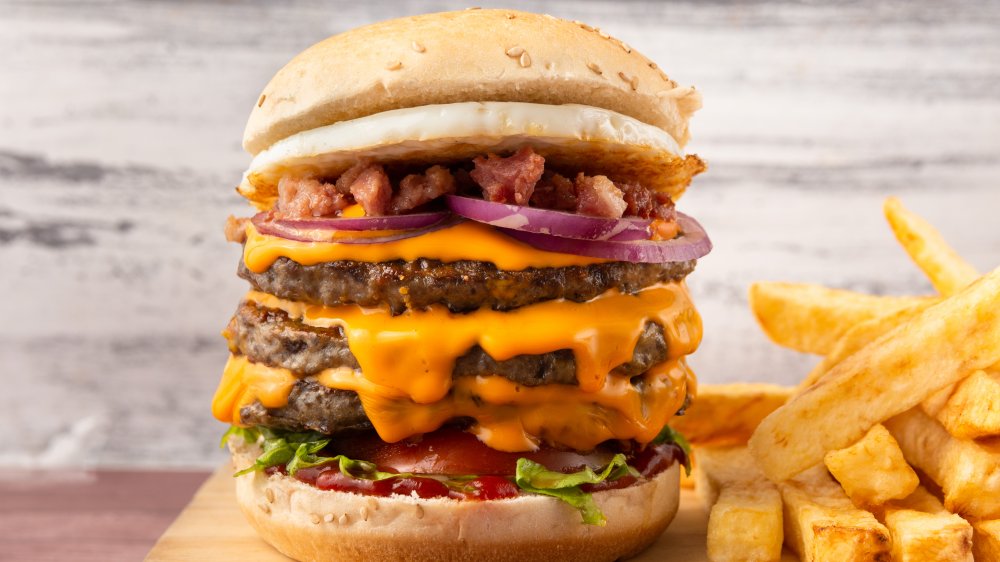This Is How Much Protein You Really Need Every Day
Americans can be forgiven for being obsessed with protein. High-protein shakes, bars, cereals, smoothies, yogurt, and even peanut butter stock grocery store shelves. Fast food outlets offer double- and even triple-patty burgers, and these protein bombs have no trouble selling.
Protein is an essential macronutrient that is vital for practically every bodily function. It's needed to build and maintain muscle, repair tissue, and transport nutrients, as well as to make enzymes, hormones, and neurotransmitters, according to Healthline. Not only that, but getting enough protein can help you lose or maintain weight by boosting metabolism and reducing appetite. Chad Kerksick, director of the Exercise and Performance Nutrition Laboratory at Lindenwood University in St. Charles, Missouri, told US News & World Report, "We mostly talk about dietary protein in regard to muscle protein synthesis, but there are trillions of cells in the body that require protein. It is needed for the healthy cell turnover and recovery in the organs, tissues — all of the cells within the immune system require protein." But just how much protein do we really need?
The Dietary Reference Intake (DRI) — the amount recommended by the Institute of Medicine for healthy individuals — is 0.36 grams of protein per pound (or 0.8 grams per kilogram). This is the basic amount of protein needed to prevent deficiency, but, like most things nutrition-related, the precise amount an individual needs depends on a number of factors.
The quality — not just quantity — of protein is important
Men generally need more protein than women because they tend to have more muscle mass and larger bodies. Athletes, bodybuilders, pregnant women, and individuals over the age of 65 also need more protein (via Discover).
Dieticians emphasize that getting enough protein should not be just about quantity, but quality, too. Processed hot dogs are just not on par with grilled salmon. Animal sources like lean meat, fish, eggs, and dairy products generally provide the best sources of protein because the protein is complete. That means that those sources contain all of the essential amino acids, in the right ratios, that our bodies need but can't synthesize on their own. There are a handful of plant-based foods that provide complete protein, like quinoa and buckwheat, but vegans need to be well informed to make sure their protein needs are being met.
Chances are excellent that when it comes to protein, you're getting enough. According to LiveStrong, most Americans actually consume more protein than they actually need, and protein deficiency in the U.S. is rare.


